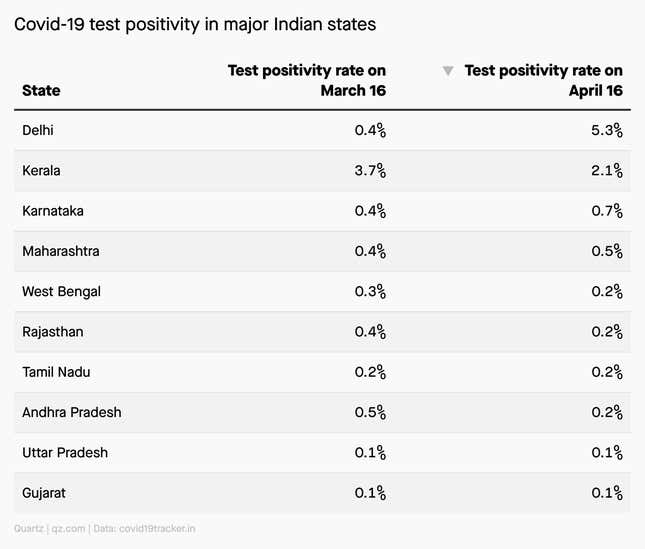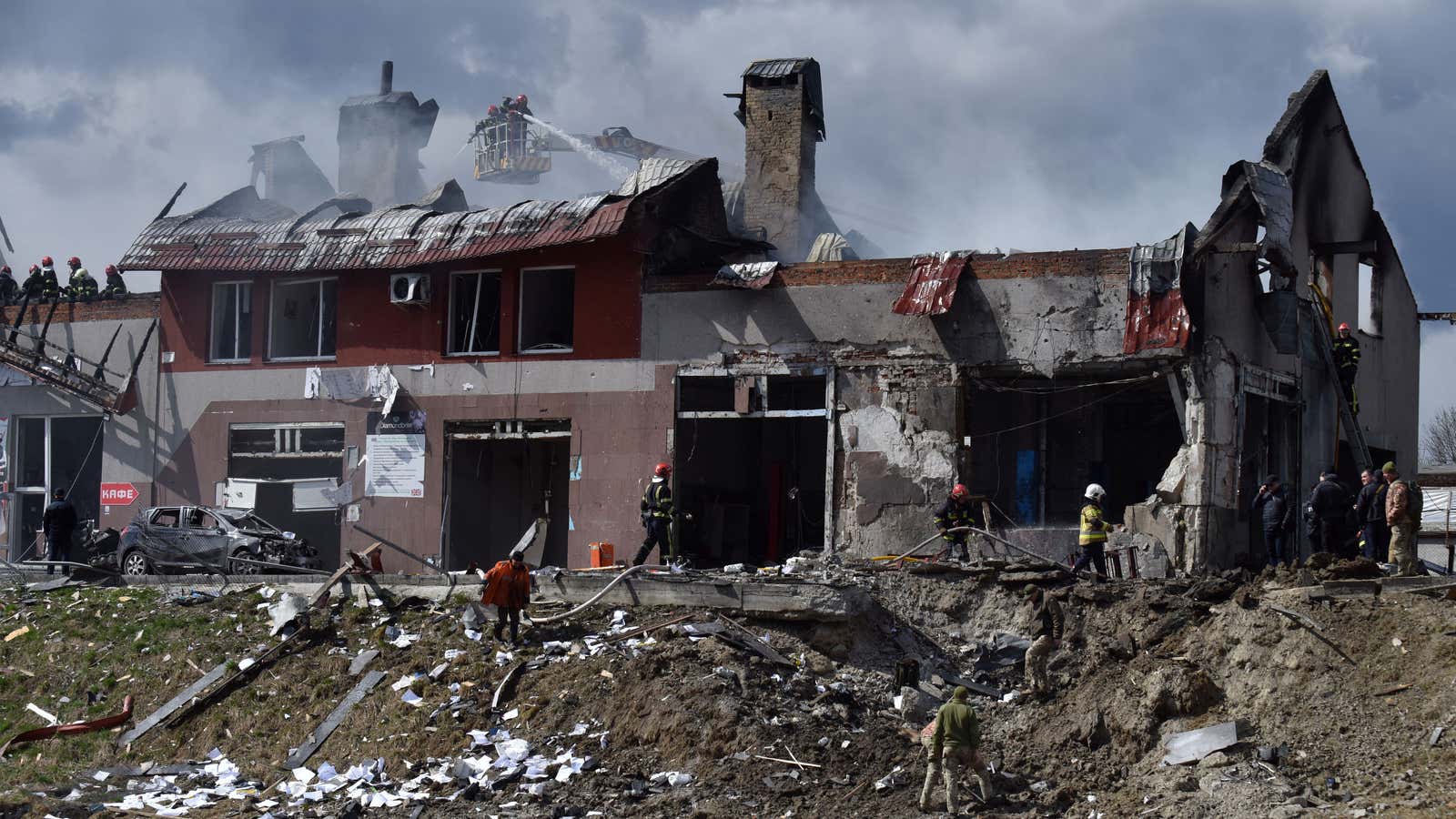Good morning, Quartz readers!
In case you missed it—we’re lifting our paywall, making the vast majority of our journalism free for everyone to read! It’s all part of our mission to make business better.
Here’s what you need to know
Russia attacked the western Ukrainian city of Lviv. The attack cut off a refugee passageway to neighboring Poland, and showed that Russia isn’t solely focusing on the eastern part of the country.
A US public transit mask mandate was overturned by a federal judge. The Centers for Disease Control and Prevention just last week had extended the rule to May 3 amid a surge in omicron BA.2 subvariant cases.
Russia is taking legal steps to recover its frozen foreign currency. The US sanctions on about $300 billion of Russian assets are “unprecedented,” according to the head of the country’s central bank.
The Chinese central bank announced a stimulus package. The measures come right as the country reported its biggest drop in consumer spending and worst unemployment rate since the start of the pandemic.
Shanghai recorded its first covid deaths since lockdown. The financial hub has seen at least 320,000 cases since March but is still adhering to its zero-covid strategy.
Marine Le Pen drops in the polls. Emmanuel Macron gained steam as France’s presidential race enters its last week.
What to watch for
Two key measures for the US housing market come out this week, new residential construction, and sales of existing homes. For more than a year now, these two indicators have told the story of a housing market gone off the rails: Fewer homes have gone onto the market amid a surge in demand, which means they’re selling for more money than ever before. And construction of new homes, snagged by delays and increased material costs, hasn’t been able to keep up.
It’s a housing drought, and analysts are praying for rain in the form of higher interest rates. Mortgages rates just crossed 5% for the first time in a decade, which is expected to slow price growth and the speed of home sales. There’s widespread agreement that creating new housing is the way to get out of this mess, which is what has led some cities to pursue converting unused office space into apartments.
What is a poison pill?
Poison pill: (n.) a common nickname for a shareholder rights plan, which allows shareholders to buy additional shares of a company’s stock at a discount, diluting the value of each individual share
Twitter’s board of directors adopted a poison pill defense to protect the company from Elon Musk and his insta-famous purchase offer. Whether it’s trolling or a legit offer remains to be seen.
But Twitter’s board isn’t trying to take chances. With a poison pill, a company concerned about an unwanted corporate takeover will put the plan in place and, after a triggering event—in Twitter’s case, if one person buys 15% of the stock without the board’s approval—all other shareholders will be afforded the opportunity to buy up more shares.
Will it work? A poison pill isn’t totally invulnerable, but it will require a whole lot of money and effort on Musk’s part to get around it.
Covid in India

India’s covid-19 numbers are currently at their lowest ever, but recent case counts in cities—and states like Delhi—are on the rise, which could indicate an imminent wave. With 836 million people vaccinated across the country, it’s a different scenario than it was during the deadly delta wave in 2021, but—as we all know by now—things can change if and when a new variant appears.
Handpicked Quartz
Our most popular stories from the last few days.
💭 Jack Dorsey has thoughts about Elon Musk…
👿 …Musk embodies the quality people most hate in a boss
🚛 The 80 km line of Russian trucks attempting to escape EU sanctions
⛴ Why major shipping lines are refusing to transport the West’s plastic waste
📿 CNN+ needs a Jennifer Aniston moment to save it from Quibi’s fate
✦ Love stories like these? Support our mission by becoming a member—use code MAKEBIZBETTER to take 50% off.
Surprising discoveries
A South American wildflower didn’t go extinct due to deforestation after all. Just to be clear, deforestation is still bad.
A 26-year-old college dropout’s investment firm raised $400 million in six months. But Eva Shang still lives frugally: Her biggest purchase so far is a Labradoodle named General Partner.
A gorilla became addicted to a smartphone. Amare is currently having his screentime restricted so he can learn social skills again.
A man was fired over skipping the office birthday party he requested not happen in the first place. A jury ruled in favor of the employee, who has an anxiety disorder.
An escaped wallaby didn’t go far from its zoo. Honey Bunch was found hanging out in bushes outside its exhibit, wondering what the fuss was about.
Our best wishes for a productive day. Send any news, comments, gorilla apps, and birthday cards signed by everyone in the office to hi@qz.com. Get the most out of Quartz by downloading our iOS app and becoming a member. Today’s Daily Brief was brought to you by Camille Squires, Manavi Kapur, Tiffany Ap, Susan Howson, Amanda Shendruk, Alex Ossola, and Cassie Werber.
